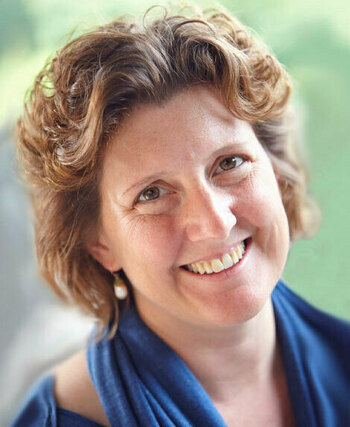
Notre Dame historian Margaret Meserve’s book Papal Bull: Print, Politics, and Propaganda in Renaissance Rome has won the American Catholic Historical Association’s Helen & Howard Marraro Prize in Italian History for being the most distinguished work in the field published in 2021.
Papal Bull explores how Renaissance popes used the printing press in its early years to promote traditions, pursue alliances, excommunicate enemies, and lure pilgrims to Rome.
“I am delighted to be awarded the Marraro Prize in Italian History,” said Meserve, the Glynn Family Honors Collegiate Professor of History and a faculty affiliate of the Center for Italian Studies. “Papal Bull is a work of Italian history, but it also tells an important story about the history of the Catholic Church, and it’s an honor to see the book recognized in this way.”
It’s the second time Meserve has earned a Marraro Prize; in 2008, the American Historical Association selected her book Empires of Islam in Renaissance Historical Thought for the award. In the groundbreaking publication, Meserve examined methods and motives of European historians who studied the origins of Islamic empires in the early modern period.
Papal Bull also received a highly commended designation this year from the Society for the History of Authorship, Reading and Publishing (SHARP) in its annual book awards.
Meserve, who is also the Arts and Letters director of the Glynn Family Honors Program and a former associate dean for the humanities, did much of her research for Papal Bull in Rome, at the Vatican Library, Vatican Archive, and other collections in the city. She’s grateful that she could frequently work at Notre Dame’s Rome Global Gateway, but also did extensive work in the medieval collections on the seventh floor of the Hesburgh Library.
“Our Medieval Institute is an absolutely unparalleled place to do research in North America,” said Meserve, who is a fellow of the institute, a concurrent professor of Romance languages and a fellow of the Nanovic Institute for European Studies. “Notre Dame is a great place to work on the history of religion, in general. The resources that we have here made it possible to find out almost everything I needed to know to make sense of the research I had done in archives abroad. We have tremendous strengths here in religious history and in the history of political institutions.”
Popes understood the opportunities the printing press provided to reach their faithful, Meserve shows in her book. In addition to detailing the printing of papal decrees and briefs and the growth of bureaucratic practice, the book surveys the history of Rome during the same years, with chapters on wars, diplomatic missions, relics and miracles, heretics, pilgrimages, disasters, and devotions.
Papal Bull also covers the intersection of religion and politics — how religious leaders communicate in political conflicts, or in conflicts that turn political.
“The Renaissance popes were worldly princes, who had territory to defend and income to protect,” she said. “Some led armies into battle, others prosecuted heretics or excommunicated their enemies. They saw themselves as protecting an ancient institution; what’s fascinating is how they adopted a brand new communications technology to do so.”
The papacy continues to employ some of the latest technologies to share its message — including through its website and Pope Francis’ Twitter account.
“Today the Church tries to communicate with the faithful across a variety of media,” Meserve said. “In my book, I show how the Renaissance popes faced many similar challenges and used similar strategies in order to communicate with the wider public.”
Meserve, whose research has previously been supported by the National Endowment for the Humanities, American Council of Learned Societies, American Academy in Rome, and the Newberry Library in Chicago, has completed translations of three volumes of Pope Pius II’s autobiographical Commentaries and is currently translating two more. In 2009, she provided historical expertise as a consultant with developers of the video game Assassin’s Creed II, set in Renaissance Italy.
Originally published by at al.nd.edu on December 09, 2022.